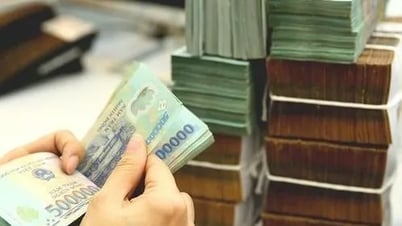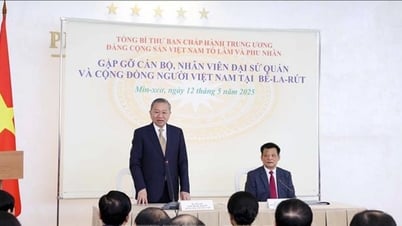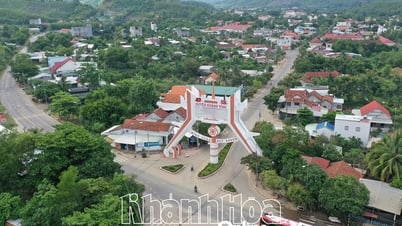Accordingly, in early May 2025, a series of commercial banks announced home loan packages with special preferential interest rates, targeting young customers. Preferential interest rates range from 3.6% to 5%/year. Meanwhile, many projects have recently been restarted, social housing projects have accelerated..., so the opportunity to own a house is opening up to many people.
In addition to the reduced interest rate, banks also increased the loan ratio to 90-100% of the value of the mortgaged property; the grace period is extended from 2 to 5 years, the loan period is from 20 to 50 years, these are unprecedented incentives.

Specifically, banks have joined the race to lend to young people to buy their first home with record low interest rates such as: MB, ABBank, ACB, LPBank, HDBank, SHB, Eximbank, TPBank, Vietcombank, BIDV, VietinBank,...
In addition to preferential loan packages for young people, many other banks also offer low interest rate policies for home buyers in general with low interest rates and long loan terms, helping home buyers gradually approach and own a home. For example, HDBank has a VND30,000 billion credit package for home loans with a starting interest rate of 4.5%/year for the first 3 months. Or LPBank launched a VND5,000 billion loan package, with interest rates from 3.88% for the first 3 months, then floating. SHB also launched a VND16,000 billion credit package for home loans with interest rates from 3.99% for the first 3 months, from 1 to 5 years, the interest rate will be from 8.3-10%, then floating.
Some banks even offer home loan interest rates at “unbelievably” low levels, such as Kienlongbank, which offers a 0% incentive for home loan packages for 1 month, with a fixed 8.8% rate for the next 18 months, and then floating rates. Or Eximbank, which offers interest rates from 3.68%/year, fixed for 36 months for young customers.
In particular, TPBank is currently launching a home loan package for customers under 35 years old, with interest rates starting at 3.6%/year, loan terms up to 35 years, no principal repayment required for the first 5 years or only 5%. Woori Bank has announced a loan package with interest rates from 3.9–3.99%/year. Or UOB applies an interest rate of 2.75%/year for special customers, while normal customers have an interest rate of 5.5%/year or more.
State-owned banks such as Vietcombank, BIDV, and VietinBank still maintain interest rates of 5–7%/year. Some banks such as ACB and VPBank also apply preferential rates of 3.99–5.5%/year for the first 2–3 years.
Although preferential loan packages bring many opportunities, experts say that borrowers still face risks from floating interest rates after the preferential period. Because preferential loan packages announced by banks at low interest rates are all short-term interest rates, which will then float according to the market. Experts warn of risks from floating interest rates after the preferential period, according to which floating interest rates can reach 11-13%/year or higher.
Dr. Nguyen Tri Hieu - Economic expert recommends that borrowers should ensure that the total debt repayment does not exceed 60% of their monthly income to avoid long-term financial pressure. At the same time, he recommends that borrowers carefully study the terms, including the interest rate adjustment mechanism, early repayment fees and other costs to avoid falling into the "interest rate trap".
Besides, according to customers, the preferential interest rate of 3-6% applied only for the first 6 months is too short, besides, many customers also think that there is not much breakthrough because customers who want to borrow still need to have real estate as collateral, proof of income through salary statements, labor contracts...; especially need to pay fees such as notarization, mortgage and moreover, buy insurance.
Financial expert Le Quoc Kien assessed that the preferential interest rate of 3.99% or 5.55% applied for a period of 3 to 6 months is just an "advertising" trick of the bank. Because after this short preferential period, the interest rate will increase to 8.7-10% for 3 to 5 years and continue to float.
Sharing the same view, Mr. Dinh Minh Tuan, Director of Batdongsan in the Southern region, said that the interest rate below 6% for a term of less than 6 months is actually just a "bait". If the loan incentives are given for a short period, it will not be enough to reduce financial pressure throughout the loan life cycle (average 15-20 years), especially in the context of high housing prices like today.
According to Mr. Le Thanh Tung, Lecturer at Ho Chi Minh City Banking University, some banks offer loan limits of up to 80-100%, but customers should not borrow up to this limit because it will cause quite high debt repayment pressure. For example, a customer who borrows 2 billion VND will have to pay over 10 million VND in principal and interest per month. With an income of 30 million VND but paying the bank 15-20 million VND/month, it will lead to great debt pressure. It is advisable to calculate to spend 30-40% of your income to repay the debt.
Dr. Le Dat Chi, Ho Chi Minh City University of Economics, said that banks can transfer interest rate risks to borrowers when capital mobilization costs increase. To avoid this risk, he advised borrowers to choose large banks with stable input capital prices and transparent loan conditions to ensure that post-incentive interest rates are at a reasonable level. Comparing loan packages, understanding the post-incentive interest rate margins and related costs are key factors that borrowers need to consider carefully./.
Source: https://baodaknong.vn/gioi-tre-can-chuan-bi-phuong-an-du-phong-de-tranh-soc-khi-vay-mua-nha-252320.html



![[Photo] Prime Minister Pham Minh Chinh receives Swedish Minister of International Development Cooperation and Foreign Trade](https://vphoto.vietnam.vn/thumb/1200x675/vietnam/resource/IMAGE/2025/5/12/ae50d0bb57584fd1bbe1cd77d9ad6d97)
![[Photo] Prime Minister Pham Minh Chinh works with the Standing Committee of Thai Binh Provincial Party Committee](https://vphoto.vietnam.vn/thumb/1200x675/vietnam/resource/IMAGE/2025/5/12/f514ab990c544e05a446f77bba59c7d1)

![[Photo] Prime Minister Pham Minh Chinh starts construction of vital highway through Thai Binh and Nam Dinh](https://vphoto.vietnam.vn/thumb/1200x675/vietnam/resource/IMAGE/2025/5/12/52d98584ccea4c8dbf7c7f7484433af5)

















































































Comment (0)